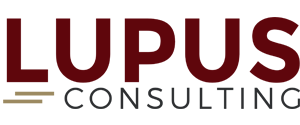When Covid 19 unexpectedly cast its shadow this spring and shortly after measures like quarantine have been taken, the effects on (mental) health became evident quickly. To help our team to overcome this stressful period better, we followed the philosophy ‘Take care and help’. Therefore, we launched the Stress Management Workshop Series to reduce the effects of the crisis on our mind and our body. After the 5th workshop, we would like to share some insights and lessons learned.
The virtual workshops are available for all of our Lupus Consulting colleagues, partners as well as for externals. The sessions are highly interactive and everyone is encouraged to share his/her stories. In the first workshop, we started with the discussion about the definition of stress by Hans Selye, the father of stress research: “Stress is a non-specific response of the living organism to any demand for change.” But is it ´just a change´ that we have experienced? Our world has not simply changed this year, the whole world turned upside down!
We also reviewed the roots of stress, because “It’s not stress that kills you, but how you react to it!” said Hans Selye. Therefore, we discussed how we can react to stress without harming our health.
One important challenge are the needs of humans in such a difficult time. During quarantine we have to go back to the basics as many restrictions have an impact on our free time and social engagements. Luckily our people have a very high body-awareness and take care of themselves. They shared their coping methods with all others on a custom Confluence Page (our internal Wiki-System). Many of them regularly work out (running, walking, hiking, cycling etc.), eat healthy and have a regular sleep schedule. Most of our colleagues take the necessary dietary supplements (e.g. magnesium, vitamin B, C, D) and drink calming herbal teas (e.g. lemongrass, lavender). In addition to this, our colleagues are aware of the importance of mindful media consumption, which is a proven way to reduce external stress.
However, the results of the Stress Test have shown that only a few colleagues were on the top of the “moderate stress” score range. In personal follow-up meetings the situation of those with a higher stress level was carefully analysed. In a later phase, the service line managers were involved into the process as well.
During the workshops we practiced easy-to-learn, simple and effective relaxation and mindfulness techniques. We learned about alternative stress management methods from our guest experts in Kinesiology, Bach Flower remedies, Access Bars and Tai Chi. A Tai chi trainer taught easy-to-learn Qigong relaxation exercises, which we practiced together via Microsoft Teams.
Last week we started to talk about Burnout, but since this is a sensitive topic, we will go on with this during the following sessions. At the end of the day, the workshops gave us a great opportunity to share our thoughts and feelings which helped to increase our awareness. We are not alone. “We are here to help each other to get through this thing, whatever it is.” ― as Kurt Vonnegut said once.

